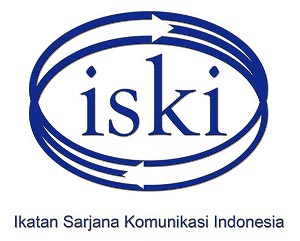“POLITIK TANPA MAHAR”: SEMIOTIKA JARGON KOMUNIKASI PARTAI NASIONAL DEMOKRAT DI ERA DEMOKRASI BIAYA TINGGI
Abstract
ABSTRACT
Money has become the blood for the lives of political parties nowadays. Amid public perception that political parties are entities that cannot be separated from money, the Democratic National Party (Nasdem Party) launched the jargon "Politik Tanpa Mahar". That is, a person who is nominated to be a regional head or a member of the legislature does not need to pay any costs to the party in the nomination process. This study examines how the jargon process was formulated at the internal party level, how the impact on candidates proposed by the party when they conducted political communication, and how the public perceives the jargon and its relation to the assessment of the Nasdem Party. This study uses a qualitative approach with the Roland Barthes semiotic method. The results of the study revealed, first, this jargon itself was born based on the constraints of politics in Indonesia which abort people with good and integrity. With the enactment of jargon, which is also interpreted as a policy, Nasdem also contributed to the eradication of corruption on the internal side. Secondly, the promotion of this jargon caused several legislative candidates to move to the Nasdem party as capital in the interests of raising public votes. Finally, the community considered that this jargon was quite realistic and under the vision and mission of the Nasdem party to provide a positive image in the eyes of the community.
Keywords: Jargon, Political communication, Political parties, Community perception, Semiotics
ABSTRAK
Saat ini, uang telah menjadi darah bagi kehidupan partai politik. Di tengah persepsi masyarakat bahwa partai politik adalah entitas yang tidak dapat dipisahkan dari uang, Partai Nasional Demokrat (Partai Nasdem) meluncurkan jargon “Politik Tanpa Mahar”. Maksudnya, seseorang yang dicalonkan menjadi kepala daerah atau anggota legislatif tidak perlu mengeluarkan biaya apapun kepada partai dalam proses pencalonannya. Penelitian ini mengkaji bagaimana proses jargon tersebut dirumuskan pada tingkat internal partai, bagaimana dampaknya terhadap para kandidat yang diajukan partai ketika mereka melakukan komunikasi politik, serta bagaimana publik mempersepsikan jargon tersebut dan relasinya dengan penilaian terhadap Partai Nasdem. Penelitian ini menggunakan pendekatan kualitatif dengan metode semiotika Roland Barthes. Hasil penelitian mengungkapkan, pertama, jargon ini sendiri terlahir atas dasar kendala dari politik di Indonesia yang menggugurkan orang-orang baik dan berintegritas. Dengan diberlakukannya jargon, yang juga diartikan sebagai kebijakan, Nasdem turut berkontribusi dalam pengentasan korupsi di pihak internal. Kedua, diusungnya jargon ini menyebabkan beberapa calon legislatif, untuk berpindah ke partai Nasdem sebagai modal untuk kepentingan menaikkan suara publik. Terakhir, masyarakat menilai bahwa jargon ini cukup realistis dan sesuai dengan visi misi partai Nasdem sehingga memberikan citra yang positif di mata masyarakat.
Kata kunci: Jargon, Komunikasi politik, Partai politik, Persepsi masyarakat, Semiotika
Full Text:
PDFReferences
Ohman, Magnus, Controlling Money in Politics: An Introduction, Washington: International Foundation for Electoral Systems, 2013.
Walecki, Marcin, Challenging the Norms and Standards of Election Administration: Political Finance, International Foundation for Electoral Systems (IFES) 2007.
Aditya, W. (2016). Moralitas Republik (P. Institute, ed.). Jakarta.
DOI: http://dx.doi.org/10.30813/s:jk.v13i2.1938
Refbacks
- There are currently no refbacks.
Copyright (c) 2020 SEMIOTIKA: Jurnal Komunikasi
Publisher
Editorial Board SEMIOTIKA: Jurnal Komunikasi
Department of Communication
Faculty of Social Science and Humanities
"UNIVERSITAS BUNDA MULIA"
Lodan Raya St No.2, North Jakarta 14430
Phone: +62 21 692 9090 ext. 348
Email: SEMIOTIKA@ubm.ac.id













